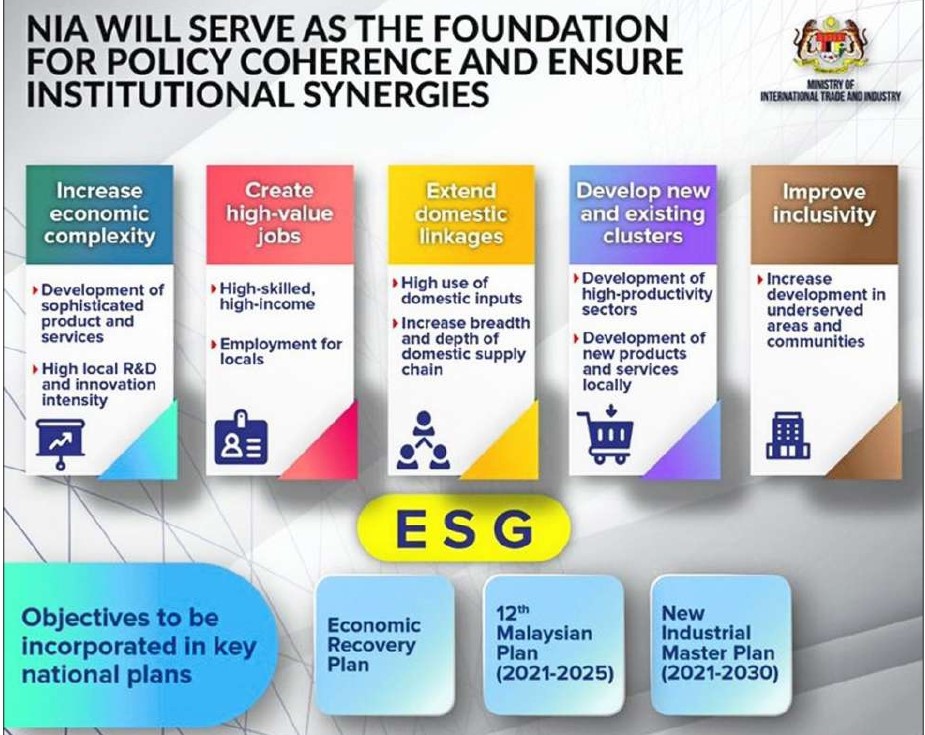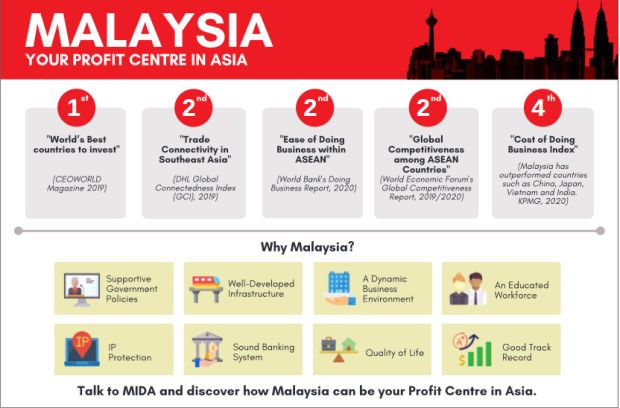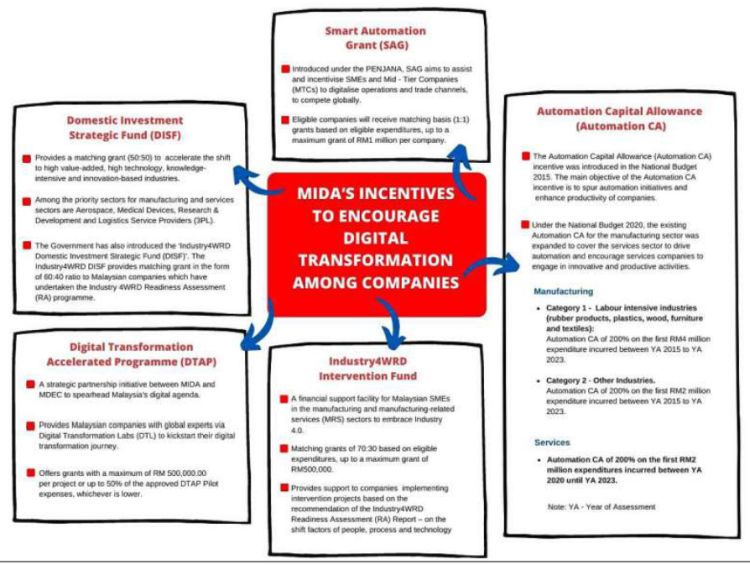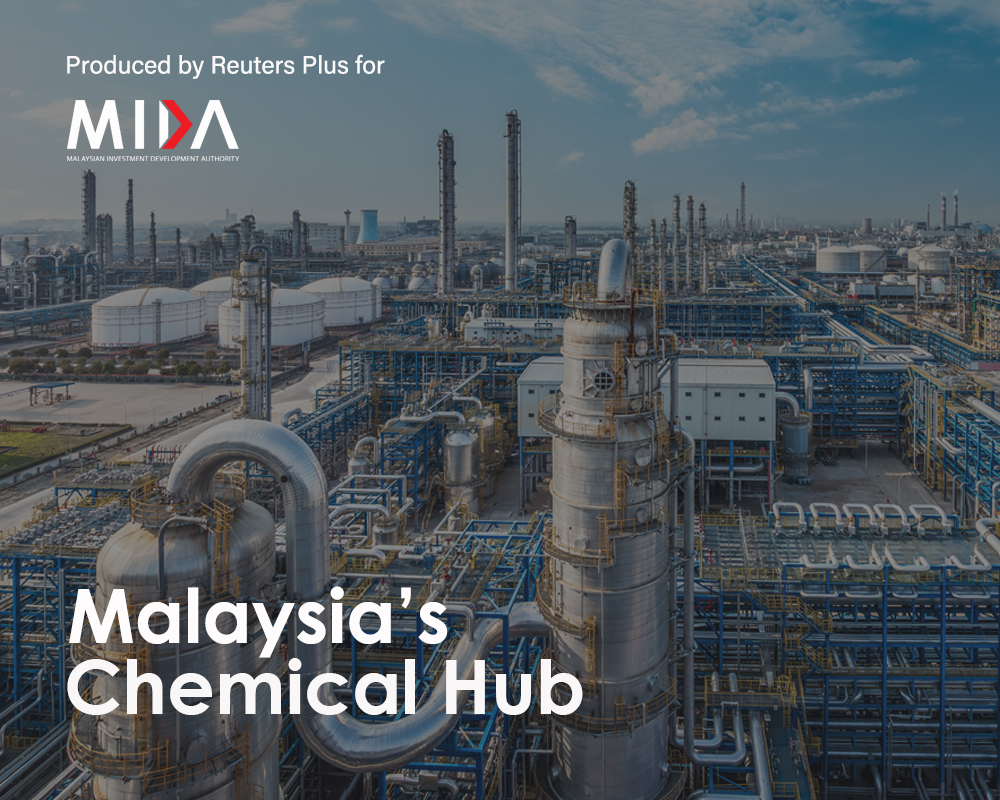The Malaysian Investment Development Authority (MIDA) and HSBC Malaysia renewed their commitment to attracting additional global investments and facilitating the establishment and expansion of multinational corporations in the country.
Both parties signed a memorandum of understanding (MoU) to focus on revitalising and reforming Malaysia’s economy during and after Covid-19 by maximising potential foreign direct investment (FDI) opportunities into Malaysia, particularly in the manufacturing sector, specifically in the electrical and electronics, chemical, machinery and equipment, aerospace, and medical devices industries.
Despite the pandemic, MIDA noted that these industries continue to play a critical role in propelling Malaysia towards strategic diversification to increase competitiveness by focusing on complex, knowledge-intensive and high-end products and services.
MIDA chief executive officer Arham Abdul Rahman said this MoU echoes National Investment Aspirations (NIA) framework to entice higher-quality investments, particularly in the areas of technology and innovation.
He said Malaysia would continue to be a strategic business partner to businesses within ASEAN and beyond.
“We boast of a robust pool of talent and a well-diversified economy resting on the back of strong economic fundamentals.
“Moreover, Malaysia’s established a local supply chain that is well-integrated into the global value chain, supported by a strong and matured local engineering support industry, are undeniable pull factors for investors seeking to expand their production capacity efficiently and with ease.
“This renewal of the partnership with HSBC Malaysia signals MIDA’s prevailing commitment to assist our investors better and provide a stronger support as we weather the current pandemic wave,” he said in a statement today.
Arham said HSBC’s vast expertise in cross-border trade and investment would continue to be an invaluable addition to MIDA’s stakeholders to make well-informed investment decisions while conducting their businesses across various markets.
“This will ultimately enable a continuous sustainable stream of quality investment activities in the country,” he said.
HSBC Malaysia chief executive officer Stuart Milne said for more than 130 years, HSBC has played a pivotal role in Malaysia’s growth and development.
“We value this significant partnership between HSBC and MIDA. Both organisations first stamped our long term partnership in 2016, showcasing the trust that MIDA places in HSBC as among the leading international banks in Malaysia.
“With our international footprint and access to key markets globally, we are eager to collaborate with MIDA on nation-building programmes to capture growth opportunities.
“We look forward to our enhanced partnership and exemplary collaborative accomplishments connecting global investors to MIDA,” he said.
This strategic public-private partnership will leverage MIDA’s marketing and trade exchange initiatives, such as trade and investment missions, while capitalising on HSBC’s global presence with access to more than 90 per cent of global gross domestic product (GDP) through trade and capital flows as well as connectivity to global corporate customers in more than 60 countries.
With these combined capabilities, HSBC and MIDA will be holding virtual roadshows, joint seminars, conferences and round-table discussions.
In 2020, several virtual investment roundtable meetings in key markets such as Netherlands, Germany, China, ASEAN and Europe took place to explore and assist companies in investing in Malaysia.
HSBC will work with MIDA to provide banking and finance services, including FDI advisory to companies venturing into Malaysia.
In addition, HSBC is keen to connect with MIDA’s local and overseas offices, to be among the ecosystem partners in active markets such as Netherlands, Germany, China, ASEAN, Japan, USA and UK in disseminating information on FDI opportunities into Malaysia.
Source: NST
MIDA, HSBC renewed focus in attracting additional FDIs, MNC expansion in Malaysia
Content Type:
Duration:






